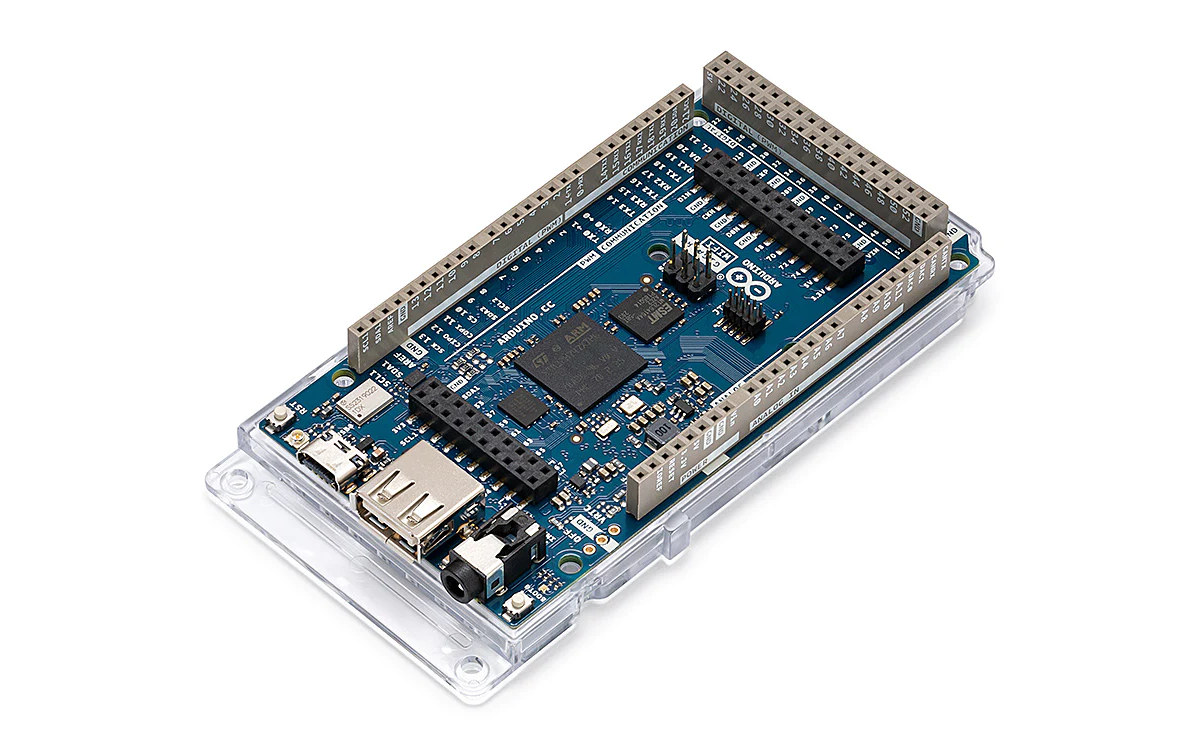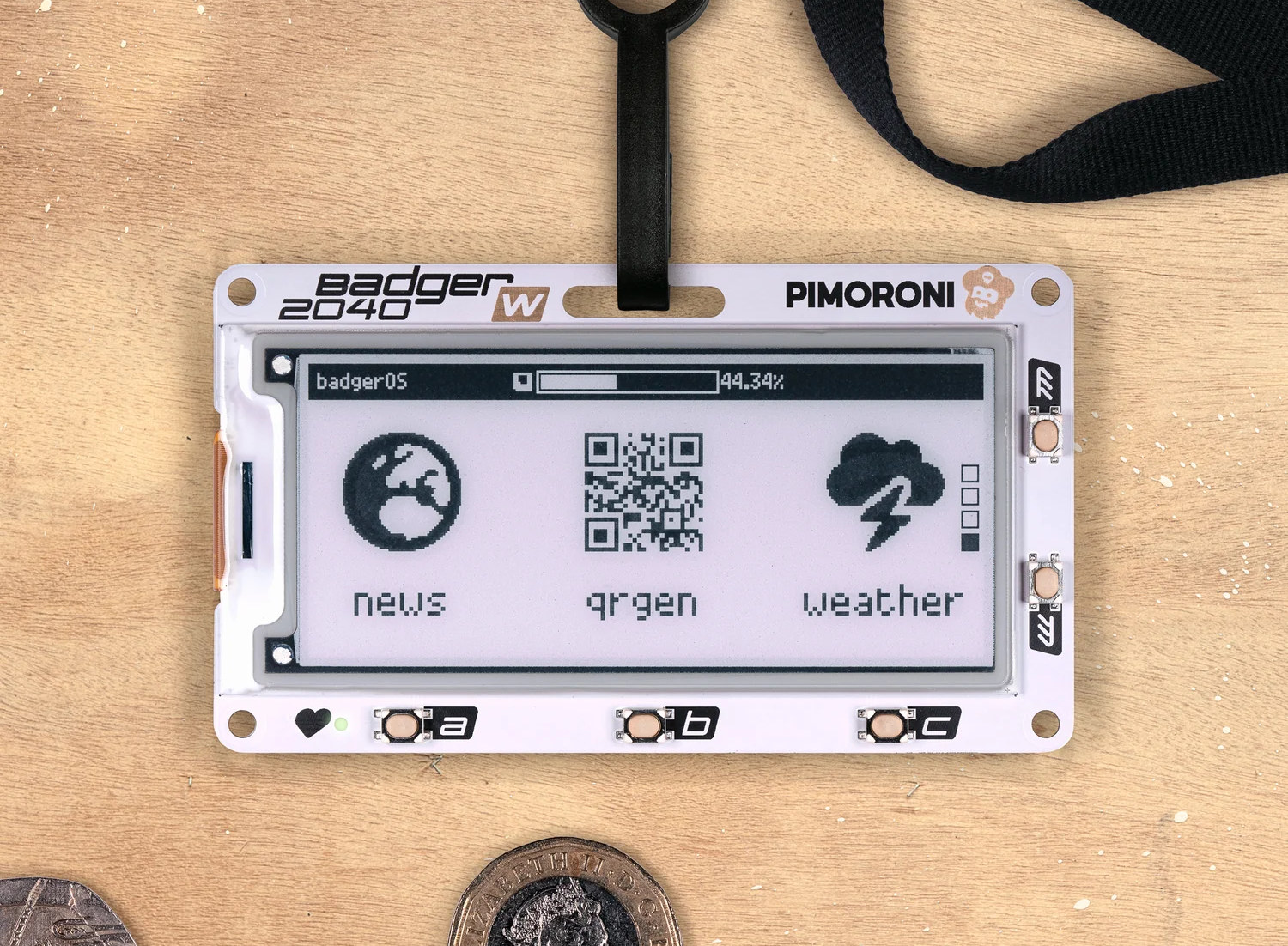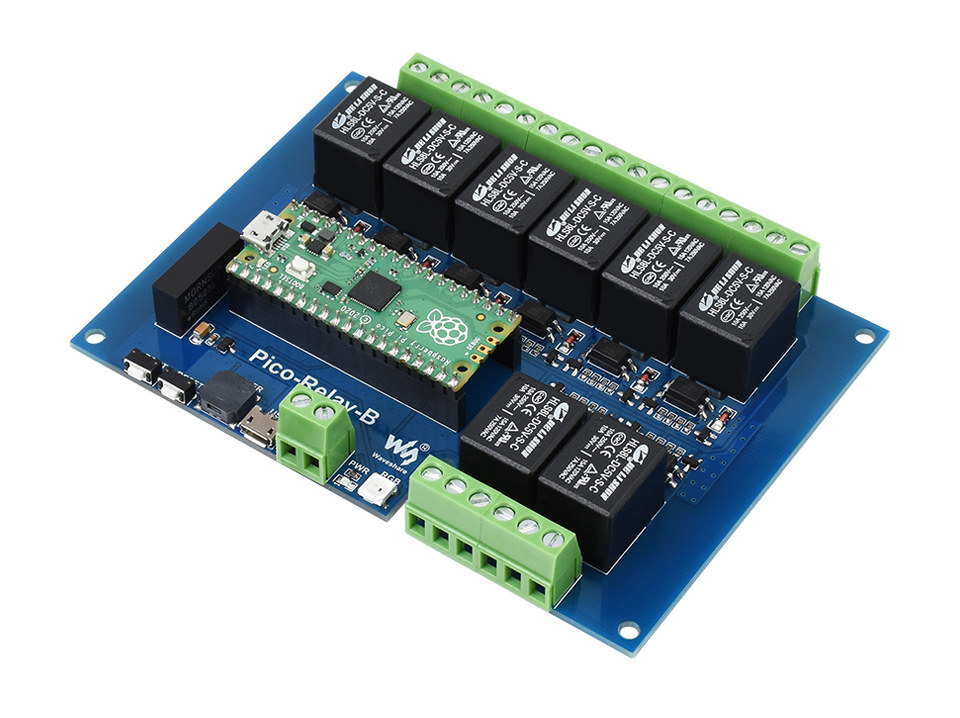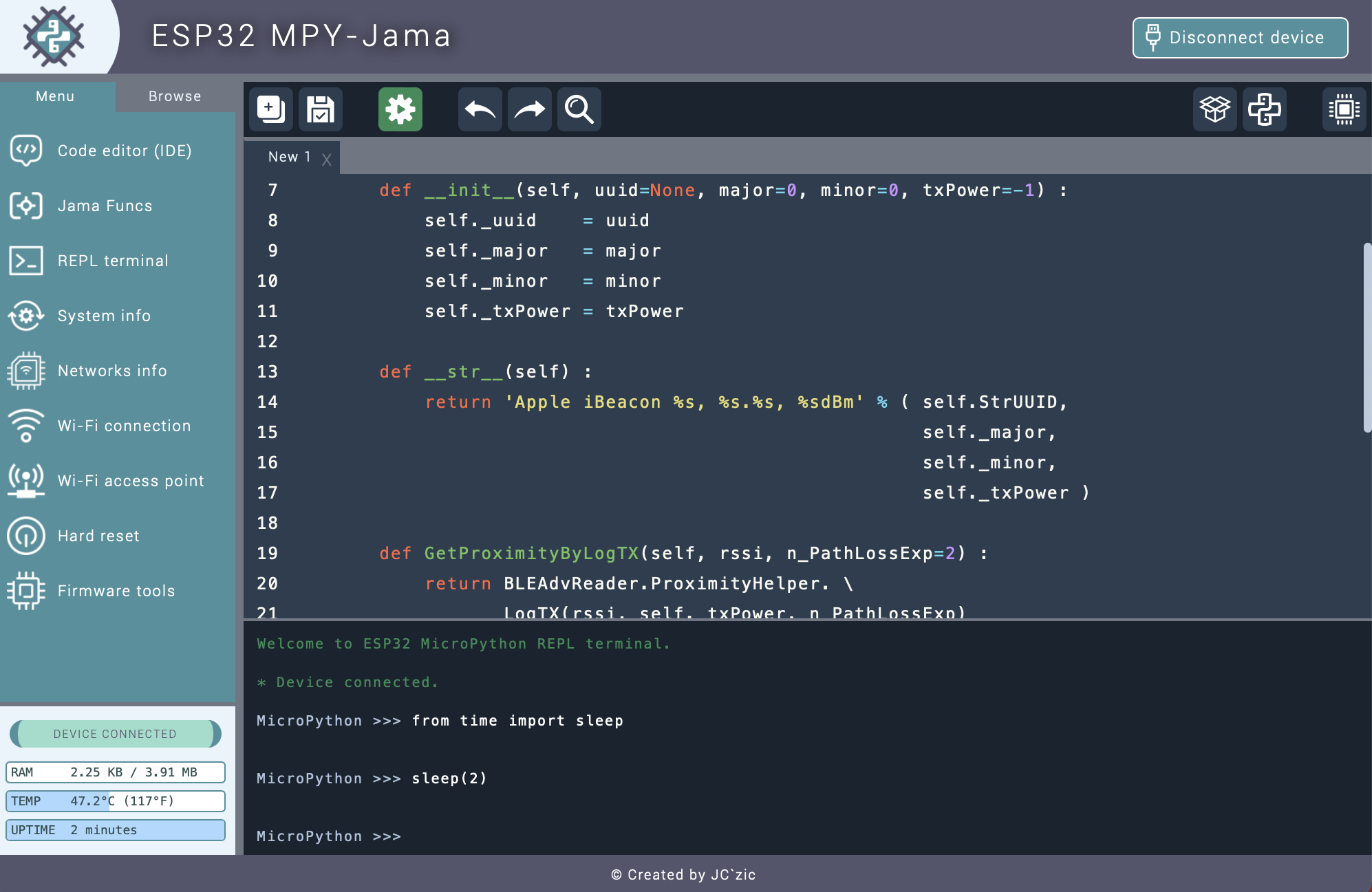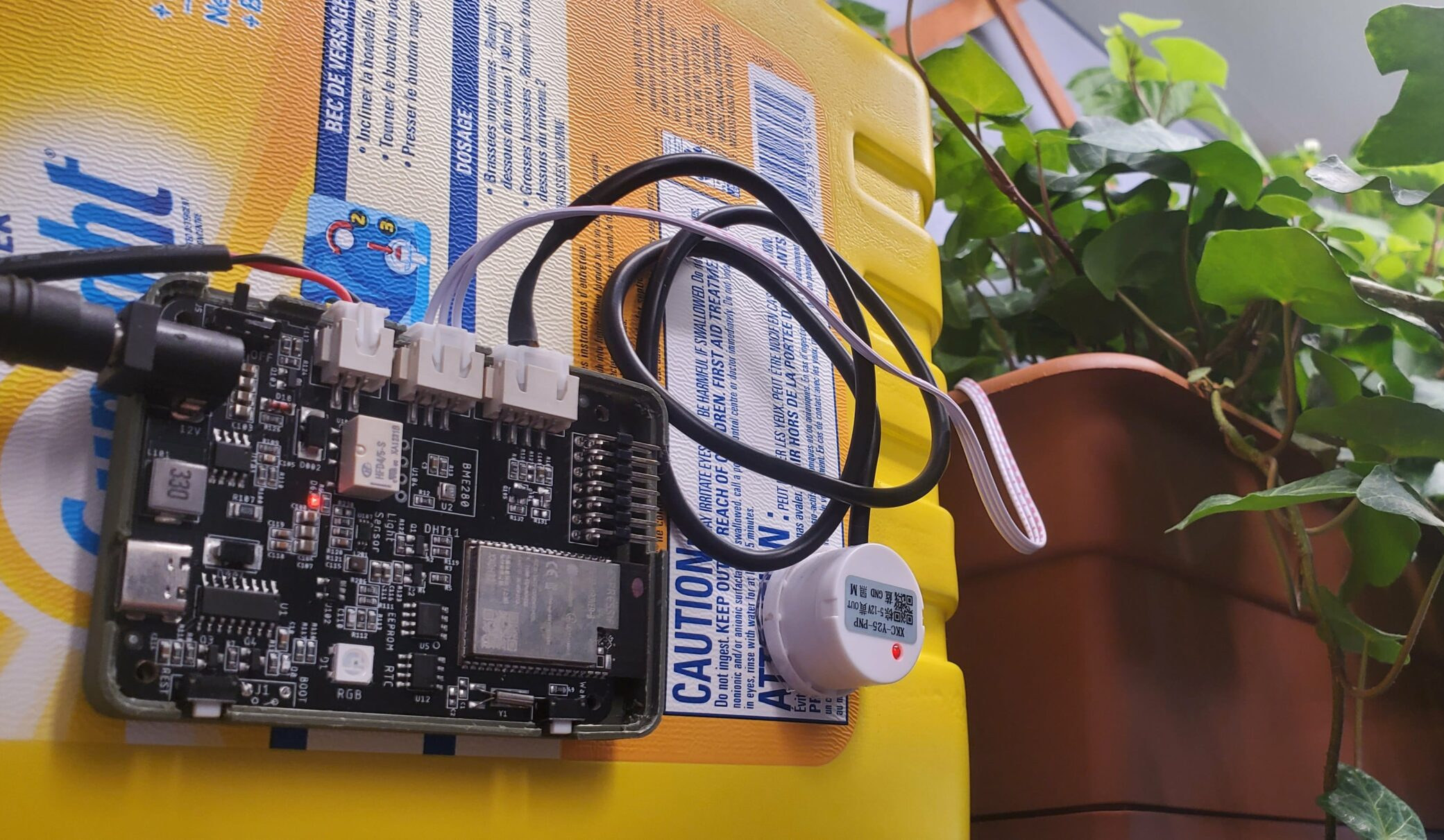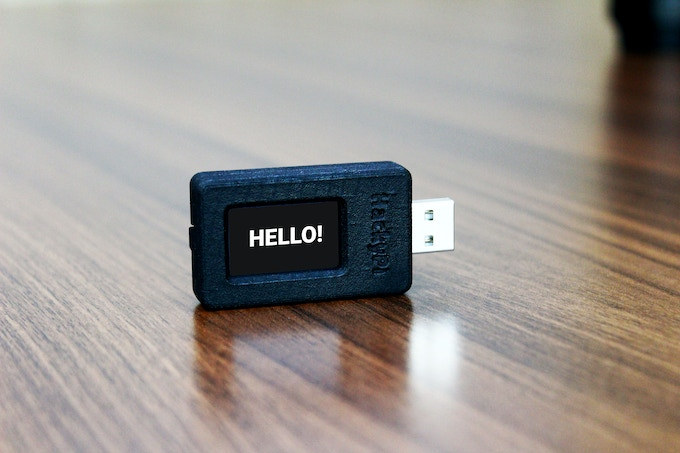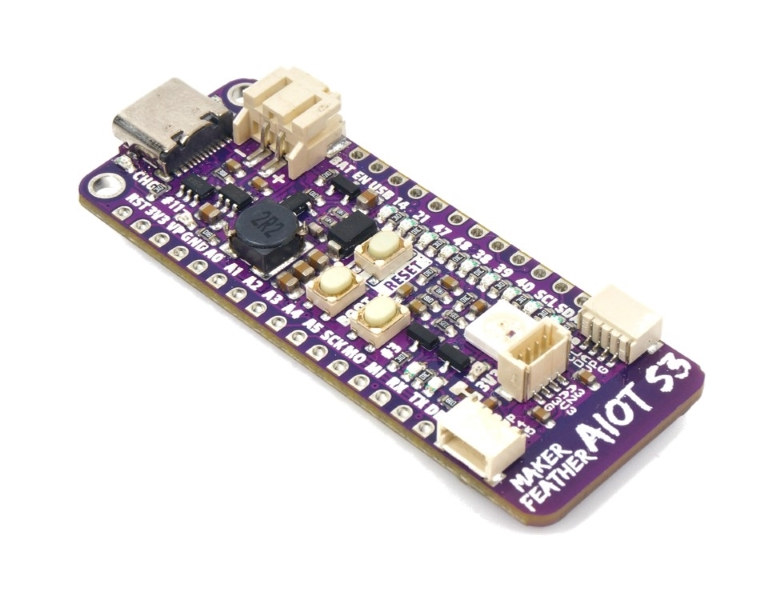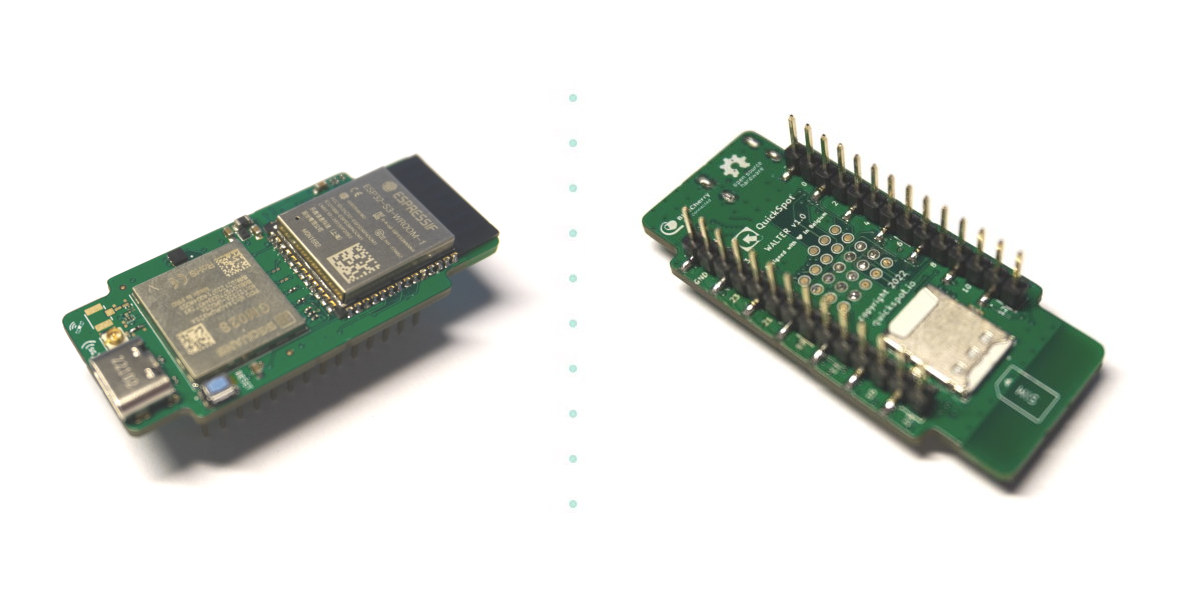Arduino GIGA R1 WiFi board brings the STM32H7 dual-core Cortex-M7/M4 microcontroller found in the Portenta H7 boards to the larger Arduino Mega/Due form factor with up to 76 GPIO pins. As its name implies, the board also comes with a WiFi 4 (and Bluetooth 5.1) module, as well as an audio jack, a USB Type-C port for programming, a USB 2.0 Type-A host port, and extra connectors for a display and a camera. Arduino GIGA R1 WiFi board specifications: Microcontroller – STMicro STM32H747XI Cortex-M7 @ 480 MHz + M4 @ 200 MHz MCU with 2MB dual-bank Flash memory, 1 MB RAM, Chrom-ART graphical hardware accelerator System Memory – 8MB SDRAM Storage – 16MB QSPI NOR flash Connectivity – 2.4GHz WiFi 802.11b/g/n up to 65 Mbps and Bluetooth 5.1 BR/EDR/LE via Murata 1DX module Display – 20-pin header (J5) Camera – 20-pin Arducam camera header (J6) USB 1x USB Type-C port […]
Badger 2040 W e-Paper display gets WiFi & Bluetooth with Raspberry Pi Pico W
Pimoroni Badger 2040 W wireless programmable e-Paper badge comes with a 2.9-inch black & white E-Ink display and a Raspberry Pi Pico W board for WiFi (and Bluetooth) connectivity. It is an update to the Pimoroni Badger 2040 with the exact same display, but instead of using a Raspberry Pi RP2040 microcontroller, Pimoroni fitted a Raspberry Pi Pico W on the back of the board, probably to avoid going through FCC and CE certifications. Badger 2040 W specifications: MCU board – Raspberry Pi Pico W board with: Raspberry Pi RP2040 dual-core Arm Cortex M0+ running at up to 133Mhz with 264kB of SRAM Storage – 2MB QSPI flash Wireless – 802.11b/g/n WiFi 4 and Bluetooth Classic+LE with ABRACON onboard antenna (Infineon CYW43439 connected over SPI) Display – 2.9-inch B&W E-Ink display with 296 x 128 pixels resolution, ultrawide viewing angles, ultra-low power consumption; Dot pitch – 0.227 x 0.226 mm […]
Control 8 relays with the Raspberry Pi Pico using PicoRelay8 or Pico-Relay-B
8086 Consultancy’s PicoRelay8 is a baseboard for the Raspberry Pi Pico (W) board equipped with eight 28V DC / 10A Normally Open relays that be used for all sorts of automation projects, while Waveshare Pico-Relay-B also supports eight relays with both DC and AC loads and comes with some extra features. PicoRelay8 PicoRelay8 board specifications: Supported MCU board – Raspberry Pi Pico or Pi Pico W, and it may also work with “mostly” compatible boards such as the Banana Pi BPI-Pico-RP2040 or BPI-PicoW-S3, WeAct RP2040, and others as long as all GPIO used on the PicoRelay8 are exposed on the same pins. Relays 8x HF3FF/005-1HST relays rated for 28V DC/10A, as well as 10A/250V AC and 15A/125V AC, but the board is not designed to get power from the mains (safety-wise), so it’s only really suitable for DC loads Each relay has a 2-pin terminal block attached to it. GPIO […]
ESP32 MPY-Jama is a MicroPython IDE for ESP32 boards
ESP32 MPY-Jama is a cross-platform MicroPython IDE specifically designed for ESP32 boards with a file manager, a REPL terminal, real-time dashboards, and various ESP32-specific features. The IDE is an open-source Python program using pyWebView and pySerial plus some JavaScript for the user interface, and the developer of the program, Jean-Christophe Bos, provides binaries for Windows 64-bit and macOS 64-bit Arm or x86. It’s also possible to use it in Linux but needs to be built from source. Some of the key features of the ESP32 MPY-Jama IDE include: MicroPython code editor with syntax highlighting REPL interface Access to information dashboards with real-time data about WiFi and Bluetooth connections, system info with GPIO status, CPU frequency, memory and SPI flash details Easy 2-click methods to connect to WiFi and create an access point Graphical interface to install a new firmware through esptool Ability to create, import, and run “Jama Funcs” mini-applications […]
Eduponics Mini v2.0 Smart Agriculture IoT kit gets more flash, new sensors, 4-channel valve board (Crowdfunding)
Eduponics Mini v2.0 is a Smart Agriculture IoT kit based on the ESP32 wireless microcontroller with built-in sensors to measure temperature, humidity, barometric pressure, and ambient light, and interfaces to connect water level and soil moisture sensors. The new board builds upon the Eduponics Mini introduced two years ago, but based on the 8MB flash version of the ESP32-WROVER-B module, a different mix of sensors, a BM8563 RTC module replacing the DS1307 RTC chip, and the addition of Grove connectors for external sensors from companies such Elecrow. Eduponics Mini v2.0 specifications with highlights in bold or strikethrough showing the differences with the first revision of the board: Wireless module – ESP32-WROVER-B module with ESP32 Wi-Fi and Bluetooth SoC, 8MB QSPI flash loaded with MicroPyhon firmware, 8MB SPRAM, PCB antenna Built-in sensors BH1750 I2C light sensor Footprint for BME280 I2C temperature, humidity, and barometric sensor QMP6988 I2C Barometric air pressure sensor […]
HackyPi Raspberry Pi RP2040 USB dongle serves as an educational “hacking” tool (Crowdfunding)
SB Components’ HackyPi is a Raspberry Pi RP2040-based USB dongle whose main purpose is to teach ethical hacking and coding programs, in other words, some sort of portable educational hacking tool. The small USB stick features a 1.14-inch color LCD, a MicroSD card to store data such as scripts and photos, and a button to enable programming like on other Raspberry Pi RP2040 boards. HackyPi specifications: MCU – Raspberry Pi RP2040 dual-core Cortex-M0+ microcontroller @ 133 MHz with 264KB SRAM Storage – QSPI flash, MicroSD card slot Display – 1.14-inch color LCD with 240 x 135 resolution USB – 1x USB 1.1 Type-A port Misc – Boot “Initiate Program” button Power Supply – 5V via USB port Dimensions – 55.04 x 23.20mm SB Components says the HackyPi USB dongle can be programmed with Raspberry Pi Pico C/C++ and MicroPython SDKs as well as CircuitPython, and they will release hardware design […]
Maker Feather AIoT S3 – An ESP32-S3 board programmable with CircuitPython or Arduino
Cytron Maker Feather AIoT S3 is an ESP32-S3 board compatible with the Adafruit Feather form factor and suitable for makers and STEM education with features like LEDs for GPIOs, a buzzer, expansion headers and connectors, and support for CircuitPython & Arduino. The WiFi and Bluetooth LE IoT board also supports LiPo and Li-Ion batteries, includes a USB Type-C port for power/charging and programming, and a few buttons. It’s suitable for machine learning thanks to the vector extensions found in the ESP32-S3 microcontroller. Maker Feather AIoT S3 specifications: Wireless module – Espressif ESP32-S3-WROOM-1-N8R8 module with ESP32-S3 dual-core LX7 microprocessor @ up to 240 MHz with Vector extension for machine learning, 8MB FLASH, 8MB PSRAM, WiFi 4 and Bluetooth 5 LE/Mesh USB – 1x USB Type-C port power and programming Expansion 2x GPIO headers compatible with Adafruit Feather form factor and FeatherWing add-on boards 3x Maker Ports compatible with Qwiic, STEMMA QT, […]
Walter ESP32-S3 board supports NB-IoT, LTE-M, and GPS
QuickSpot Walter is an ESP32-S3 development board with built-in WiFi 4 and Bluetooth LE/Mesh connectivity, as well as NB-IoT, LTE-M, and GNSS support through a Sequans GM02SP 5G IoT modem that appears to be a variant of the Sequans Monarch 2 GM02S with GNSS support. Walter specifications: Wireless modules ESP32-S3-WROOM-1-N16R2 module ESP32-S3 dual-core LX7 microcontroller 2MB QSPI PSRAM 16MB QSPI flash 802.11 b/g/n WiFi 4 up to 150 Mbps with on-board antenna Bluetooth 5 LE up to 2Mbps, Bluetooth Mesh Sequans GM02SP modem LTE Cat M1 (LTE-M) and NB1/NB2 (NB-IoT) GNSS and assisted GNSS using GPS and Galileo constellations NanoSIM for cellular connectivity I/Os 2x 14-pin headers with up to 24x GPIO, UART, VIN, 3.3V, and GND 23x test points 3.3V I/O voltage Power Supply 5V (3.0 to 5.5V) DC via VIN pin 5V via USB Type-C port Dimensions – 55 x 24.8 mm Temperature Range – -40°C to +85°C […]


